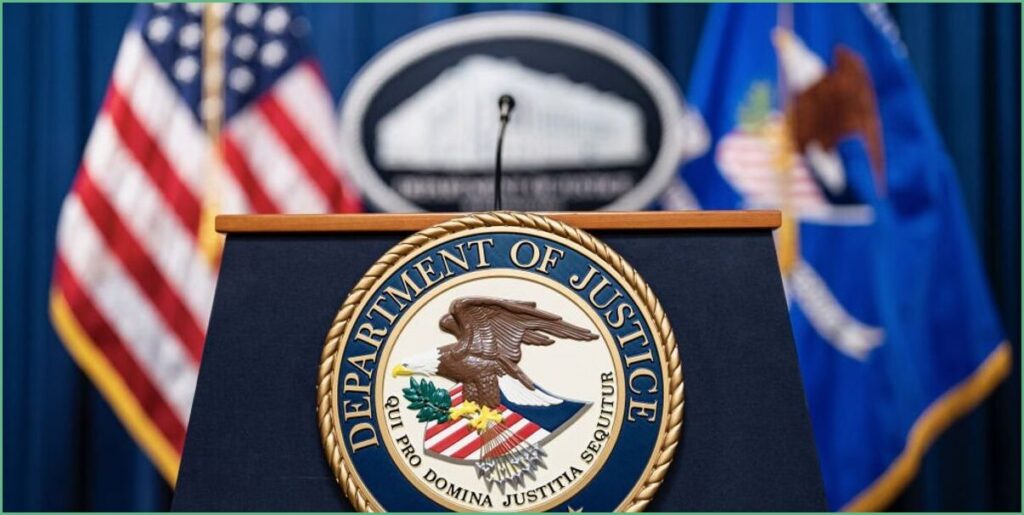The Department of Justice has issued a blunt warning to California after leading state Democrats suggested local officers could arrest federal agents over immigration enforcement actions, and federal officials now say such arrests would be unlawful and met with prosecution. This standoff has unfolded amid protests and a violent checkpoint incident in the Bay Area, raising sharp questions about authority, public safety, and how far states can go to challenge federal operations. The piece below lays out the main claims, the Justice Department response, and the local incidents fueling the showdown. Read on for the facts and the stakes, presented with clear, direct language.
California politicians have openly mused about arresting federal immigration officers who they claim break state law while acting in federal roles, and that posture has pushed the conflict from rhetoric toward potential action. At the center of the discussion are prominent Democrats who argue state and local authorities could step in if they believe federal agents used unlawful force or otherwise violated California statutes. This confrontational stance makes federal leaders nervous because it directly challenges the uniform enforcement of national law and the safety of agents doing their jobs.
One of the most striking lines came from former Speaker Nancy Pelosi and Representative Kevin Mullin, who wrote, “While the president may enjoy absolute immunity courtesy of his rogue Supreme Court, those who operate under his orders do not. Our state and local authorities may arrest federal agents if they break California law — and if they are convicted, the president cannot pardon them.” Those words have been quoted exactly and they crystallize the willingness among some state officials to test the limits of federal-state disputes. For Republicans and many law-and-order voters, that language reads as an invitation to chaos rather than a careful legal strategy.
San Francisco District Attorney Brooke Jenkins said her office has drafted plans to arrest federal agents if they use force in the city akin to actions seen in other protest flashpoints. She reportedly believes local police would support arrests when there is “clear, excessive use of force,” a threshold she says would justify intervening. That plan strikes many as reckless because it risks putting local officers in direct conflict with federal personnel on the ground, creating dangerous split loyalties during tense operations.
The Justice Department answered with a short, decisive message that framed any attempt to detain federal agents as both unlawful and pointless, noting existing federal statutes bar interference with immigration and other federal law enforcement activities. The DOJ warned it would prosecute state or local officials who violate federal law in such circumstances, signaling that threats of arrests would not stand without serious federal consequences. For anyone concerned about maintaining a consistent rule of law, that response was necessary and expected.
‘Illegal and futile.’ is how the department described the prospect of arresting federal agents for actions taken while performing official duties, and the phrase captures the DOJ’s blunt stance. Federal law provides tools to protect officers and operations from obstruction, and prosecutors in Washington are prepared to use them, which is exactly what one would expect in defense of national authority. This isn’t about partisan posturing so much as the practical reality that two competing legal systems cannot both enforce the same scene without disaster.
Outside of the legal back-and-forth, the Bay Area has already seen violence around federal deployments, with protests targeting a staging area and a frightening checkpoint clash that ended with shots fired. Demonstrators reportedly blocked access to a Coast Guard staging site, and later a masked suspect allegedly used a vehicle to try to ram a checkpoint, prompting defensive gunfire from federal personnel. The Department of Homeland Security reported no DHS staff were injured in the exchange and the suspect was shot and taken to the hospital, while a bystander suffered a minor wound from a fragment and was released.
The FBI has taken the lead on investigating the shooting, and federal officials emphasize that protecting agents and preserving public safety are nonnegotiable priorities when protests escalate into physical threats. Local talk of arresting federal officers only increases the risk of such dangerous confrontations by muddying lines of authority and inviting direct clashes where clear chains of command should exist. Voters who care about safety, order, and the effective enforcement of immigration and other federal laws are watching closely as this tense dispute plays out.
As the legal fight intensifies, the basic questions remain: who enforces the law when federal and state views collide, and how do we avoid turning enforcement into a battleground? The Justice Department has signaled it will not tolerate interference, and federal investigators are already on the scene in the wake of the Bay Area violence. That combination of legal warning and active investigation sets the tone for what comes next, and it makes plain that talk of arrests will face swift, serious federal pushback.
